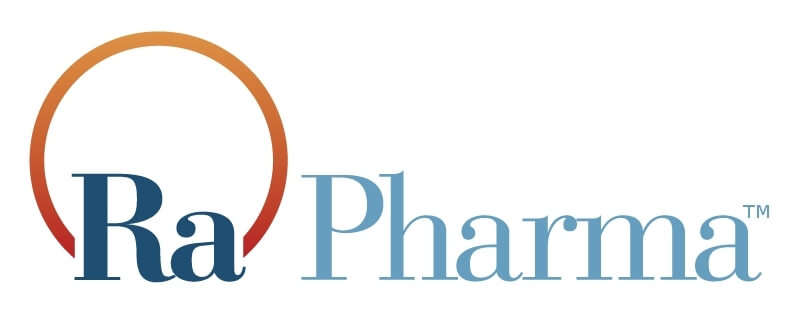On Dec. 10, Ra Pharmaceuticals Inc., based in Cambridge, Mass., announced positive results from a Phase 2 clinical trial designed to evaluate zilucoplan (RA101495) for treating generalized myasthenia gravis (gMG). Patients who received the drug had significant reductions in both measured endpoints, the Quantitative Myasthenia Gravis (QMG) score and the Myasthenia Gravis — Activities of Daily Living (MG-ADL) score. The QMG score is a physician-administered test that assesses the severity of the disease (the QMG scale ranges from 0 to 39, with a higher score representing more severe impairment). The Myasthenia Gravis — Activities of Daily Living profile, or MG-ADL, is a patient-reported index of daily living assessment (a score greater than 6 suggests that activities of daily living are moderately/severely impacted by the disease). 
Based on these results, the company will work with regulatory agencies to approve a Phase 3 trial design by end of the first quarter of 2019.
As a self-injection, this treatment could represent a viable effective, at-home therapy for people with gMG.
About the study
In the Phase 2 trial designed to evaluate the safety, tolerability and preliminary efficacy of zilucoplan in patients with gMG, 44 participants received a daily subcutaneous (under-the-skin) injection of either 0.3 mg/kg zilucoplan, 0.1 mg/kg zilucoplan or a placebo over the course of 12 weeks. Patients who received the higher dose achieved a mean reduction (from baseline) of 6.0 points in the QMG score compared to a reduction of 3.2 points for patients receiving placebo. Additionally, those receiving the higher dose of zilucoplan showed a mean reduction (from baseline) of 3.4 points in the MG-ADL score compared to a 1.1 point reduction for those on placebo.
No serious adverse effects were observed related to treatment with zilucoplan.
Based on the results, the Phase 3 trial will most likely be designed to employ the higher, 0.3 mg dose. The company plans to confirm Phase 3 trial design with the FDA and other regulatory agencies by the first quarter of 2019 and to collect an expanded dataset, including pharmacodynamics data.
About generalized myasthenia gravis
Myasthenia gravis (MG) is an autoimmune disease that attacks a person’s own muscles, leading to double vision, ptosis (drooping of the eyelids) and difficulty swallowing, talking, breathing and using the arms and legs. Generalized MG affects only a subset of MG patients, and these people experience muscle weakness in the head, neck, trunk, limb and respiratory muscles. An estimated 10 to 15 percent of patients with gMG do not respond to treatments that are typically helpful in other MG patients.
Normally, nerve cells communicate with muscle cells by sending electrical signals across the neuromuscular junction, or NMJ; the nerve cell releases a neurotransmitter called acetylcholine across the NMJ, where it binds to a receptor on the muscle cell to stimulate contraction. In patients with MG, the body’s own immune system turns on itself to produce antibodies against the acetylcholine receptor or other proteins at the NMJ, which in turn can activate another part of the immune system called the complement cascade. Normally, the complement system is responsible for helping antibodies clear damaged cells and potentially toxic microbes that could cause infections. In patients with antibodies against the acetylcholine receptor, however, activation of the complement cascade leads to a localized destruction of the NMJ. As a result, the communication between nerve and muscle is impaired, which in turn leads to a loss of normal muscle function.
About zilucoplan
Zilucoplan is a synthetic peptide — a peptide is a short chain of amino acids that acts like a protein — that binds the complement component 5 (C5) protein, inhibiting its function and preventing the assembly of the complex that breaks down the neuromuscular junction. It would be administered subcutaneously by self-injection, similar in form to a daily insulin injection, Ra Pharmaceuticals says.
Evolving treatment options
While MG can be managed with a variety of existing therapies, including corticosteroids and immunosuppressants, these treatments may not always be effective or work fast enough, and can often have serious short- and long-term side effects.
Alexion Pharmaceuticals’ eculizumab (brand name Soliris), which is approved to treat other unrelated conditions, was approved in Europe last year to treat refractory gMG in adults who are anti-acetylcholine receptor antibody-positive. The FDA approved Soliris at about the same time as a treatment for adults with gMG who are anti-acetylcholine receptor antibody-positive. Soliris is the first in this new class of complement-inhibiting drugs to be approved for MG in the U.S., and it works in the same way as zilucoplan by binding to and disabling a complement protein.
About Ra Pharmaceuticals
Ra Pharmaceuticals is a biopharmaceutical company focused on developing “next-generation” therapeutics for complement-mediated diseases. The company discovers and develops peptides and small molecules that target key components of the complement cascade.
You can learn more about the status of zilucoplan in the company’s press release.
To learn more about this trial, visit ClinicalTrials.gov and enter NCT03315130 into the search box.
